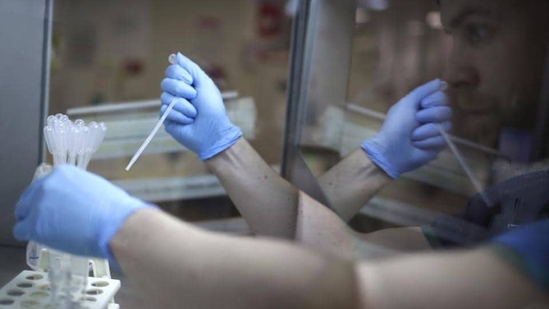In Madhya Pradesh, parents seek IVF-born boy’s body, but DNA mismatch prevents last rites
Police officials said they are now taking the help of forensic facial reconstruction experts to recreate the 14 year old boy’s face to help in identification
In 2009, frustrated by their inability to bear a child for four years, a couple in Madhya Pradesh’s Damoh district turned to in vitro fertilisation(IVF). They opted for a double donor treatment, which essentially involves a donor sperm and a donor egg being fertilized in vitro and the embryo being transplanted to the woman.

Also Read | Based on DNA report, court acquits man accused of impregnating minor
It worked; they had a son. But 14 years later, the dream has turned into nightmare, because in March, their son Jayraj Patel, a class 10 student went missing. A body matching his description was found, but their DNA clearly doesn’t match with his, preventing both last rites, and the commencement of a police investigation.
Also Read | Dogs to undergo DNA testing in France's Beziers to tackle droppings
Forty-one-year-old Lakshman Patel and 40-year-old Yashoda Patel, a farmer couple from Pipariya Chakka were married in 2004. “For four years, we waited for a child but when it did not happen, a doctor in Damoh suggested IVF technology because there was a medical issue with both of us. I didn’t trust the technology at first, and was afraid of using science to have a child, but the doctors said it would change our lives,” Patel said.
They travelled to the Asian Institute of Fertility Management, Indore. “My wife gave birth to a male child after nine months,” Patel said.
But on March 29 this year, their 14-year-old son went missing. They filed a police complaint at the Pathariya police station on the same day, but investigations made little headway. On May 14, a decomposed body was found matching his description and was found buried near a pond in Damoh. The couple identified the body as their son because of the clothes he was wearing, but the police insisted on a DNA test.
Also Read | DNA match in pizza crust lead to Rex Heuermann's arrest in Gilgo Beach killings
“My wife gave samples because we were unaware of the science in the technology and we thought the DNA would be the same because the child was in her womb for nine months and she gave birth. But the DNA did not match, and the police have refused to hand over the body. Our son, our doctor has since told us, carries the DNA of his donors, who we do not know at all,” Patel said.
Since then, for the past two months, even as the body is stored at Damoh district hospital mortuary, the parents have tried to find ways to identify the son as their own. “We want to perform the last rites, but we also want the investigation to start. We went to the hospital, but they said they do not keep records older than 10 years. This isn’t just about identity, but it is also about justice. The police will only investigate abduction and murder after identification is complete,” Patel said.
Senior police officials said that they are now taking the help of forensic facial reconstruction experts to recreate the 14-year-old boy’s face to help in identification. Rakesh Singh, Superintendent of Police Damoh said, “We understand what the couple is going through but we cannot hand over the body without being sure. After the DNA was mismatched, we sent police personnel to the Indore hospital, but they had no data. We have now sent the remains to Chandigarh for forensic facial recognition that actually existed as a procedure before DNA testing technology.”
Dr Romica Rawal, a Bhopal-based gynaecologist said, “It is clear that in this case, they injected the fertilised embryo into the woman’s womb. The law says that the hospital can’t share information with donors, so it is a sensitive area, but the hospital is mandated to keep data for seven years. That this case is 14 years old is a complication.”
(With inputs from Anupam Pateriya)






